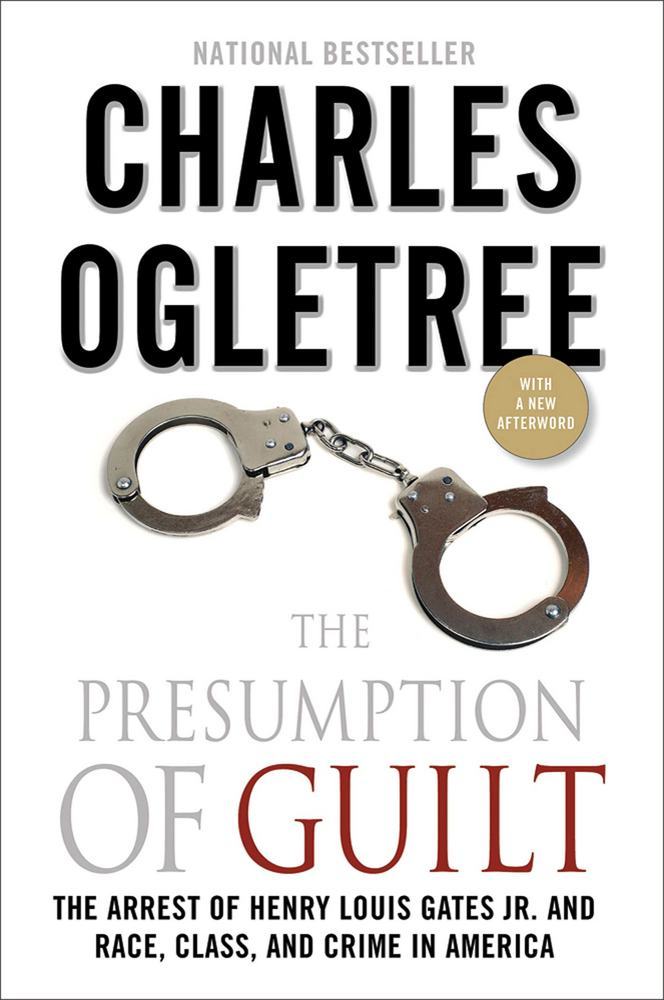In 2009, the nation was captivated by the now-infamous Cambridge arrest of Harvard University professor Henry Louis Gates. After Gates was arrested at his home and charged with disorderly conduct, prominent officials criticized the incident, including President Barack Obama who said that African Americans and Hispanics continue to face a disproportionate level of police scrutiny.
In a June 22 interview on the National Public Radio program “Talk of the Nation,” HLS Professor Charles Ogletree discussed his new book, “The Presumption of Guilt,” which argues that the arrest was representative of the racial and socioeconomic tensions inherent in the American law enforcement system.
Gates’ Lawyer Challenges ‘The Presumption Of Guilt’ : NPR
Ogletree, who served as Gates’ attorney in the immediate aftermath of the arrest, commented to host Neal Conan that he wished we were “past these issues of confrontations… between professional black men and police.” The discussion focused on the power imbalances between police and civilians as well as the realities of racial biases in the criminal system.
After the July 16, 2009, incident, a Cambridge Review Committee was established to review the incident and develop lessons learned, not only for Cambridge, but for other communities. The panel, headed by Chuck Wexler, executive director of the Police Executive Research Forum, included a dozen members who were experts in areas including police and criminal justice, race, and conflict resolution.
Their findings, released in a 60-page report on June 30, found that both Gates and Crowley missed opportunities to de-escalate the situation.
In a Q&A with the Boston Globe, Ogletree discussed his book and the report’s findings. Ogletree criticized the report’s suggestion that Crowley and Gates share blame in the incident, stating: “The report is important and timely in its recommendations about going forward and in improving the relations between law enforcement officers and the community. That is sorely needed and it could not have come at a more appropriate time. On the other hand, it’s disappointing, because the summary of the incident leaves off the most critical and dispositive factors of what occurred on July 16, 2009. For the report to say both Gates and Crowley had an equal opportunity to de-escalate the situation is just breathtaking and unbelievable. The person with control and power to make an arrest that day was Sergeant James Crowley, not Professor Gates. It was wrong of Crowley to arrest him. To say they mutually had the responsibility to resolve it is an unfair burden on the citizens. … The commission also does not reference any of the obvious mistakes in the police reports, which said Gates did not give his information. Somebody’s not telling the truth, and the public is entitled to a real sense of what happened. I just wonder if this situation would have resulted in a different outcome if there had been a woman involved, either as a police officer or as the person being questioned, and I have to say, I imagine so. We had a lot of testosterone in both directions. And we didn’t have the empathy and careful listening and measured judgment that may have resulted in a different outcome.”
On Oct. 5, Ogletree, the founding and executive director of the Charles Hamilton Institute for Race and Justice at Harvard Law School, hosted a panel discussion on the book at Harvard Law School’s Ames Courtroom, Austin Hall.
He was joined by Chuck Wexler, who wrote the Cambridge Review Committee report on the arrest of Gates. They discussed the role that class, race and authority played in the affair.
View the panel discussion.
“I’m very happy to be having a dialogue about the book and committee’s findings,” Ogletree said.
He added, “Their recommendations are phenomenal, they’re comprehensive, they’re detailed, they’ll make the police force better, they’ll make training more important…it’s an excellent report on what to do going forward.”
Ogletree said his one “quibble…or little more than a quibble” with the report was that it found Crowley and Gates “share responsibility for the escalation of the encounter.”
“I don’t think that a confrontation between the police and a citizen is equal. One has authority and one doesn’t—that means something,” he added.
In an epilogue to his book, titled “100 Ways to Look at a Black Man,” Ogletree provides accounts by 100 black men, including Attorney General Eric Holder and Major League Baseball Hall of Famer Joe Morgan, of racial discrimination by law enforcement and other institutions.
